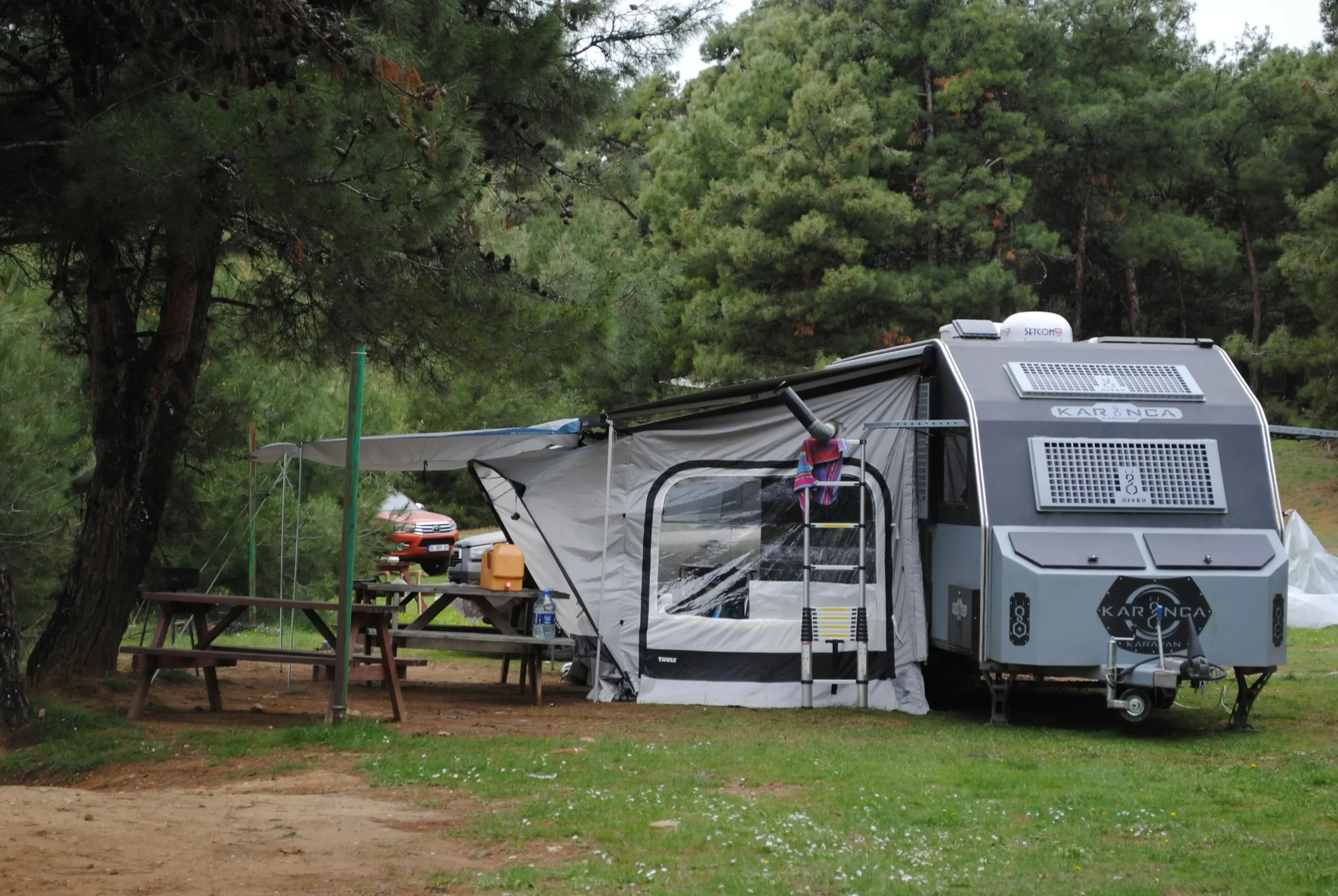
The open road calls to different people in different ways. For some, it’s about the freedom to park anywhere and explore off-the-beaten-path locations. For others, it’s about bringing the comforts of home wherever they roam. This is the essential choice when deciding between van life and RV life – two lifestyles that share a love of travel but come with distinct advantages and challenges. In this guide, we’ll break down the pros and cons of each to help you decide which is the better fit for your adventures.
What is Van Life?
Van life is all about mobility, minimalism, and flexibility. It’s a lifestyle centered around converting vans like the Mercedes Sprinter, Ford Transit, or Ram ProMaster into compact, self-sufficient living spaces. These vehicles are often custom-built to include a bed, kitchenette, storage, and sometimes even a shower or composting toilet.
Popular Van Models for Van Life:
- Mercedes-Benz Sprinter
- Ford Transit
- Ram ProMaster
- VW Transporter
- Nissan NV
What is RV Life?
RVs (Recreational Vehicles) range from small travel trailers to massive Class A motorhomes. They’re designed to provide all the comforts of a full-sized home, including full kitchens, private bathrooms, separate bedrooms, and spacious living areas. RVs come in a variety of shapes and sizes, each suited to different travel styles.
Popular RV Types:
- Class A Motorhomes – Large, bus-like RVs with all the amenities.
- Class B Campervans – Similar to van life setups, but more factory-built.
- Class C Motorhomes – Mid-sized, truck-based RVs with over-cab sleeping areas.
- Travel Trailers and Fifth Wheels – Towable options for those who prefer to park and explore.
Pros and Cons of Van Life
Pros:
- Mobility and Maneuverability – Vans can go places that larger RVs can’t, from narrow mountain roads to tight urban streets.
- Stealth Camping – It’s easier to blend in and camp overnight in a van without drawing attention.
- Fuel Efficiency – Vans are generally more fuel-efficient than most RVs, making long road trips more affordable.
- Lower Maintenance Costs – Fewer systems and moving parts mean less frequent (and often cheaper) repairs.
- Adventure-Ready – With 4×4 or AWD options, vans can handle rough terrain and off-grid camping.
Cons:
- Limited Space – Living in a van means embracing minimalism, as storage is tight and living space is limited.
- Lack of Comforts – While you can have a bed and kitchenette, full bathrooms and standing showers are rare.
- No Permanent “Home Base” – Van life can feel more transient, as it lacks the sense of “home” that larger RVs provide.
- Weather Challenges – Insulating a van for extreme temperatures can be a struggle, and space heaters or air conditioners can drain your battery quickly.
Pros and Cons of RV Life
Pros:
- More Living Space – You’ll have dedicated areas for sleeping, cooking, lounging, and working.
- Full Amenities – Many RVs come with full kitchens, private bathrooms, air conditioning, and large storage tanks for water and waste.
- Home-Like Comfort – It’s easier to set up a permanent living space with furniture, decor, and full-sized appliances.
- Better for Families – RVs can accommodate more people comfortably, making them ideal for families or long-term living.
- Resale Value – Well-maintained RVs can hold their value better than custom van builds.
Cons:
- Limited Mobility – Larger RVs are restricted to main roads and established campsites, making spontaneous backcountry trips harder.
- Higher Fuel Costs – These big rigs are gas guzzlers, with some Class A motorhomes averaging as little as 6-10 mpg.
- Higher Maintenance Costs – More systems mean more things that can break, from slide-outs to plumbing.
- Parking Challenges – Finding a spot for a 40-foot motorhome can be a headache, especially in cities.
- Storage Issues – Despite their size, many RVs have surprisingly limited storage space for outdoor gear.
Choosing the Right Lifestyle for You
When deciding between van life and RV life, consider the following factors:
- Travel Style – Do you prefer boondocking in remote locations or staying at established campgrounds?
- Budget – Vans tend to have lower upfront costs and better fuel efficiency, while RVs offer more amenities but come with higher maintenance costs.
- Space Needs – Are you traveling solo, with a partner, or as a family? Your space requirements will vary significantly.
- Skill Level – Vans are easier to drive and maintain, while RVs often require more technical know-how.
- Length of Stay – Are you planning short trips or full-time living? This can significantly impact your choice.
Conclusion
Ultimately, the choice between van life and RV life comes down to your personal travel style and priorities. If you crave freedom, flexibility, and off-grid adventure, van life might be your best bet. If you prefer comfort, space, and a more home-like experience on the road, RV life could be the way to go.
No matter which you choose, the open road is waiting – and the only wrong choice is not hitting it at all.






Leave a Reply